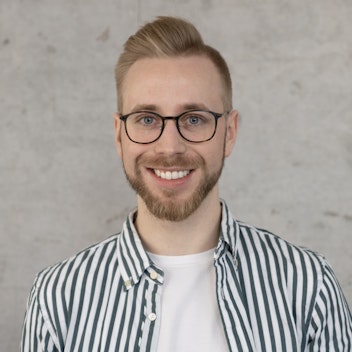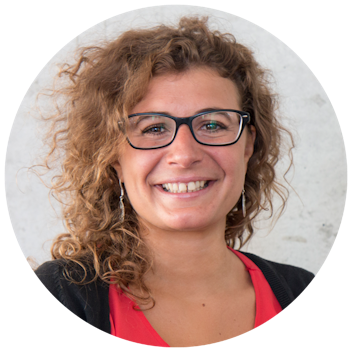
Vox Pop: Andrea from Germany
 Uwe Fromm
Uwe Fromm
From a scientific perspective, we know1 that the youth are interested in political issues and are eager to shape their environment. However, young people need suitable spaces and formal institutions to express their ideas and to interact with politicians or civil servants.
Young adults have often felt left alone by politics and the ongoing pandemic has only exacerbated this. Institutionally organised procedures of participation could contribute to counteract this feeling of negligence and municipalities could play an especially huge role in this regard: The municipality as a level of governance is the one nearest to its citizens, however, there is often a lack of opportunities for youth to participate in its formal setting.
On 6 May 2021, at Eurac Research we discussed this topic and the challenges it poses, together with local politicians from the Autonomous Region of Trentino-South Tyrol. In the meeting two projects were presented which had already been implemented in Alpine municipalities and we also discussed the policy recommendations which had been elaborated in the European Interreg project “GaYA – Governance and Youth in the Alps”.
Youth participation can have different shapes and forms. The two municipalities of Salorno/Salurn and Pergine Valsugana are different not only in regard to the number of their inhabitants (3.798 vs. 21.675) but also in their approach to youth participation. On the one hand, the municipality of Salorno/Salurn has created its own participatory process by means of the GaYA project; a working group consisting of young adults and local councillors, coordinated by an expert which elaborated all steps of the “Jugendwerkstatt Salurn / Officina dei Giovani Salorno”. The outcome of the group’s encounter was a competition of ideas whereby local youth could send their project ideas to the municipality. As a second step, all citizens of the municipality could vote for their favorite proposals. The municipality of Pergine Valsugana, on the other hand, opted for a more traditional form of participation. They founded a youth council with 15 representatives to operate as a bridge between the local youth and the local administration. This youth council has a term of five years and it regularly brings up proposals to improve life in the municipality as well as organising events to connect younger generations to their hometown.
These are only two of manifold inputs demonstrating how institutions can involve youth in political decision-making processes. Our webinar also showed that the involvement of young citizens is a goal of many local councillors, but they often shy away from major challenges, in particular: how to start and how to make this processes real?
In the policy recommendations which were elaborated during the “GaYA” project, six suggestions were raised which can support politicians to implement youth participation.
It all starts with a shift in political culture whereby trust in youth and their ideas must be taken seriously. Other important issues are the need to foster citizenship education as well as education on participatory democracy – not only among youth but also at the political, institutional and administrative level and by guaranteeing appropriate human and financial resources for youth participation. Furthermore, politicians should not underestimate the importance of networking: the valorisation and promotion of youth work and youth organisations as experts who can offer support in reaching out to young adults are crucial. Also, the facilitation of exchange and cooperation among young people, even outside their own municipalities or regions, is an important factor. Finally, there is also the issue of the institutionalisation of participation. In order to establish continuity and transparency, as well as to guarantee that youth participation will not remain an isolated “one spot” activity of a single politician or dependent on a political term, means it needs to be institutionalised. Last but not least - youth participation should not be limited to youth only issues, as for example the design of a youth room. If youth participation is to be taken seriously, young people should be involved in all kinds of topics from mobility to urban planning, or environmental issues.
There might be several challenges for politicians on the path toward a functioning youth participation in policy. It could requires substantial time and perhaps be long process. However, local politicians are among the crucial actors to make it happen. The success very much depends on politician’s will, motivation, and actions. So, political actors are called upon to build formal procedures if they are ready, to co-decide policies.
These thoughts are based on the result of the Alpine space project “GaYA – Governance and Youth in the Alps”. Please find the complete policy recommendations here and as a downloadable PDF below.

This content is licensed under a Creative Commons Attribution 4.0 International license except for third-party materials or where otherwise noted.